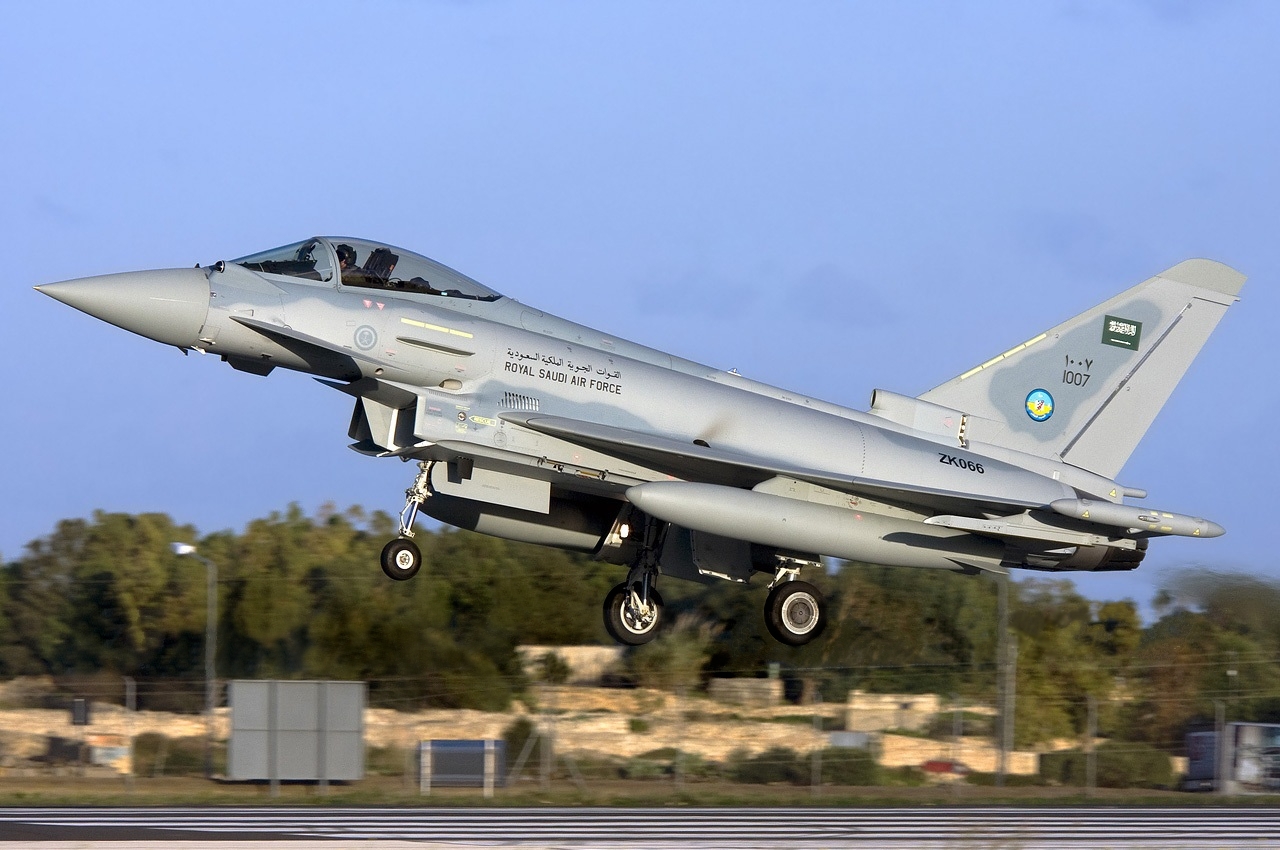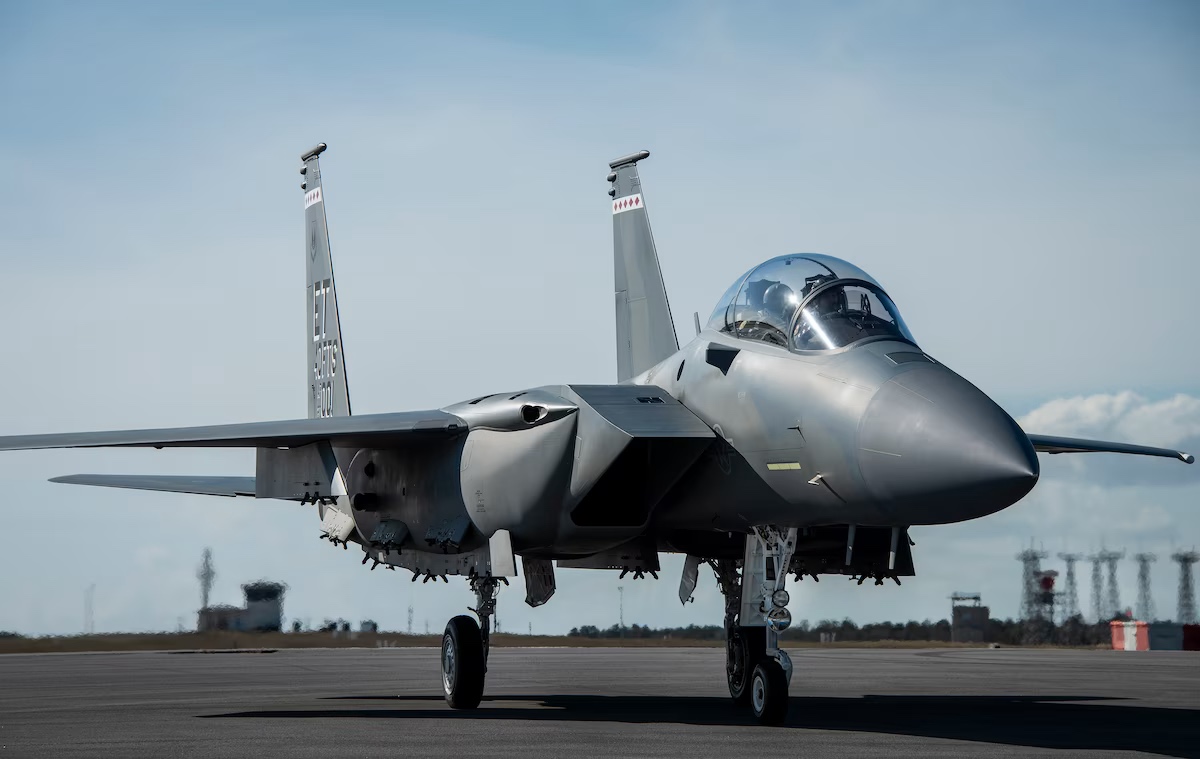As Saudi Arabia is looking to acquire 4.5 generation fighters for its Air Force, top manufacturers like Boeing, Airbus, and Dassault Aviation have lined up with their cutting-edge aircraft, putting the kingdom in a quandary.
Saudi Arabia was interested in buying the US F-35 Lightning II combat aircraft. However, it was alleged that the US government would only approve such a sale if Saudi Arabia agreed to establish diplomatic relations with Israel. Additionally, there were concerns that Israel might not support the sale of fifth-generation jets to Saudi Arabia, fearing a loss of military superiority in the region.
So, the oil-rich kingdom called for 4.5th generation aircraft to shore up its defenses to counter increasing regional security threats. Recent reports suggest that Boeing intends to capitalize on the growing export interest in the F-15EX Eagle II, especially focusing on Saudi Arabia, a long-term Eagle operator.
An overt confirmation comes days after a photo of the US Ambassador to the Kingdom of Saudi Arabia, Michael Ratney, sitting in one of Boeing Middle East’s F-15EX simulators, was posted on X late last month. The picture was shot during the US National Day celebration, which was hosted at the Saudi capital’s embassy in Riyadh.
In what now appears to be a cryptic message, Boeing’s Middle East branch described the event as one that “showcased the deep collaboration, cutting-edge technology, and mutual growth of the US and Saudi Arabia relations.”
🇺🇸🤝🇸🇦
US Ambassador H.E. Michael Ratney experienced our F-15EX simulator during the U.S. National Day celebration held at the embassy in Riyadh. The event showcased the deep collaboration, cutting-edge technology and mutual growth of the U.S. & Saudi Arabia relations. Together,… pic.twitter.com/b0CeiXt3kv
— Boeing Middle East (@BoeingMidEast) April 26, 2024
Besides the F-15EX, the kingdom has also been offered the Eurofighter Typhoon from the European consortium Airbus and the Rafale from French manufacturer Dassault Aviation.
There were reports late last year that Saudi Arabia wanted to buy more Eurofighters. It already has the aircraft and, therefore, maintenance would be easy. However, for a long time, Germany sat on a potential sale, citing human rights concerns. It was only in February this year that Berlin lifted the restrictions, and the aircraft went on offer to Saudi Arabia again.
However, while Germany blocked the sale, France’s Dassault Aviation swooped in with its Rafale fighters, which had already taken the Middle Eastern region by storm. Since August of last year, there have been reports that a historic deal for the French fighters could be on the cards.
Rafale, meaning ‘the gust of wind,’ would be a potent addition to the Saudi Arabian Air Force, boasting a fighter lineup of European Eurofighter Typhoons and American F-15s. It would also signal a departure from the traditional practice of buying only the F-15s and Eurofighter Typhoons.
Even so, Airbus continues to be optimistic about a possible contract. A recently published Eurofighter Economic Impact Assessment report predicted hundreds of these multirole combat aircraft could be sold to exporting and partner countries. While it did not name Saudi Arabia, the kingdom was regarded as a likely contender.
With three options on the table, there is also conjecture that the kingdom might take the Qatar route and make its fleet more diverse by adding Rafales to the mix of its existing fleet comprising the F-15SA and the Eurofighter Typhoons.
Although the officials in the kingdom have not officially acknowledged their interest in the French Rafale or the Airbus Eurofighter, a potential acquisition of either of these fighters may come as yet another setback to the US arms industry, which is believed to be steadily losing ground to European and even Chinese and Russian arms manufacturers in the Middle Eastern region.

Boeing Pushes F-15EX
Saudi Arabia operates multiple variants of the Boeing F-15. That is why Boeing remains hopeful that the kingdom could opt for a more advanced jet variant with which the country is already familiar. The Royal Saudi Air Force (RSAF) operates 84 new-built F-15SAs. Additionally, the 68-strong Saudi Arabian fleet comprising former F-15S aircraft has been updated to F-15SR (Saudi Retrofit).
In light of the recent agreement with Indonesia and a potential agreement with Israel, which has requested the aircraft, Boeing appears upbeat about a potential deal with Saudi Arabia. In addition, Poland has also reportedly expressed interest in the latest F-15 variant that boasts cutting-edge technology.
The Boeing F-15EX Eagle II got its seal of approval from Lt Gen Michael A Loh, Director of the US Air National Guard, for its ability to carry more weapons and fly longer distances. More importantly, the aircraft was lauded for its easy integration into the service compared to the stealth F-35A.
With decades of expertise operating the F-15s and a robust infrastructure to support it, including local enhancements, the RSAF would find it easy to integrate the F-15EX.

Boeing’s optimism and bid hinges on the kingdom having no experience with the Rafale. Moreover, the Eurofighter Typhoon purchase may not augur well since European partners often restrict the sale. Boeing, therefore, believes that the F-15EX would be the most suited, militarily and well suited for the changing political environment.
The F-15EX can use any long-range weapon, including JASSM-ERs (Joint Air-to-Surface Standoff Missile – Extended Range) and other long-range missiles. It can go great distances with its conformal fuel tanks, enabling the Air Force to deliver air superiority over greater distances.
Earlier, the F-15EX completed a successful missile test that brought the aircraft closer to carrying more air-to-air missiles than any other fighter in the inventory of the US Air Force (USAF), including the F-16 Fighting Falcon, F-35, and the F-22 Raptor.
- Contact the author at sakshi.tiwari9555 (at) gmail.com
- Follow EurAsian Times on Google News




